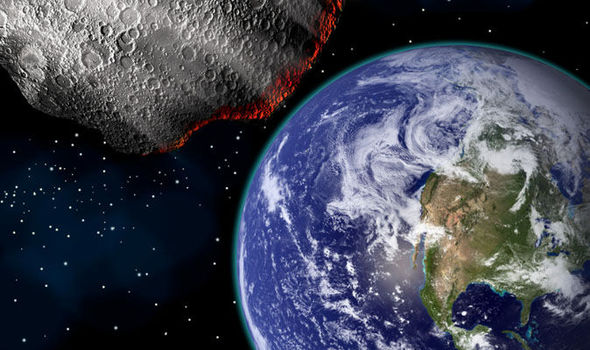
Asteroid 2017 VL2 that could have obliterated an area the size of New York city skimmed past Earth at speeds of nearly 5.5 miles per second (9km/s).
The asteroid shot by Earth on November 9 and experts did not find out about it until a day later.
The space rock flew by just 73,000 miles from our planet – which is a third of the distance between Earth and the moon.
Experts believe the asteroid is between 16 and 32 metres long, and if it hit Earth, it would have had the potential to flatten a city such as New York.
A recent investigation from Science Alert found that if a 12 metre asteroid were to hit New York it could destroy buildings within six kilometres of the impact.
As the 2017 VL2 asteroid is almost three times the size of Science Alert’s hypothetical rock, it could cause three times the damage.
Asteroid 2017 VL2 was observed at ATLAS-MLO, Mauna Loa, Hawaii and is only the 48th known asteroid to have flown within one lunar distance – the distance between the Earth and the moon (238,900 miles) – in recorded history and one of the seven largest.
The space rock is not set to pass Earth again until 2125.
The last major asteroid incident occurred in 2013 when a 20 metre meteor exploded over Chelyabinsk, Russia, which smashed windows and caused injuries to more than 1,000 people.
Prior to that, in 1908, a small asteroid up to 190 metres in size exploded over Siberia’s Tunguska which ruined woodlands across 800 miles.
In both instances, experts had no idea they were coming.
Professor Alan Fitzsimmons, from Queen’s University Belfast’s Astrophysics Research Centre, recently told Express.co.uk: “We may well still be taken by surprise by one of these smaller impacts such as Chelyabinsk or even Tunguska so we have to be prepared for that eventuality.
“I think time is on our side, we have made such great strides in our scientific understanding and the technology that we have at our disposal.
“But it is a random game at the moment, there could be one hitting tomorrow, there could even be one hitting on Asteroid Day, which would be slightly ironic.”













